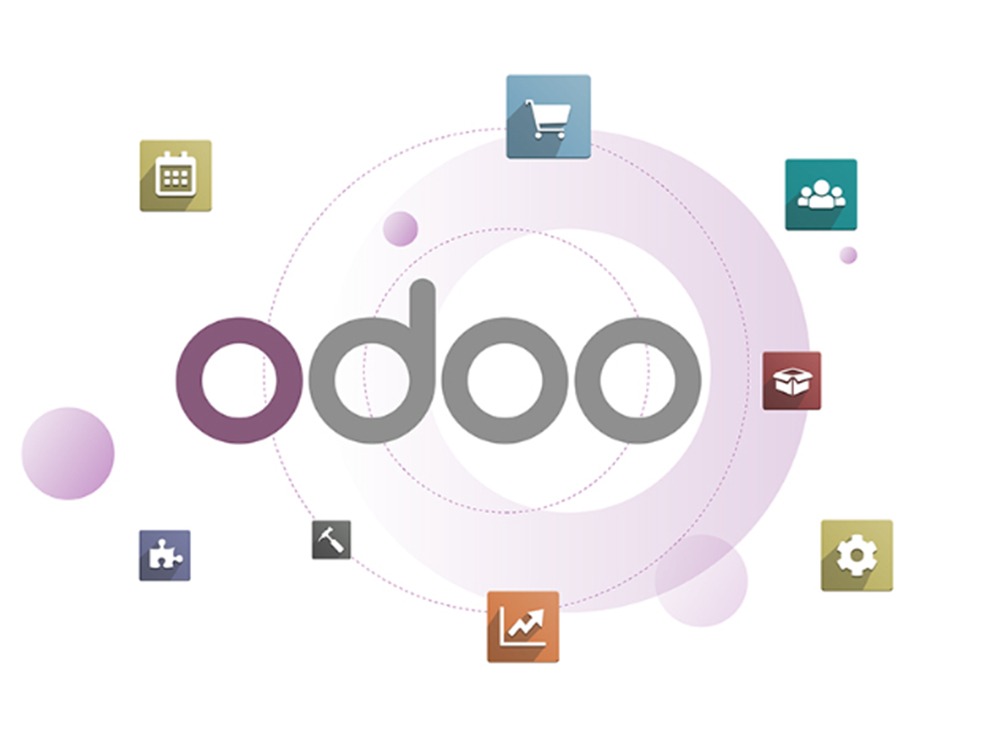Introduction
Since the first time of introduction in 1990s, Enterprise Resource Planning or ERP has powered business operation and management across accounting, finance, procurement, compliance, security, and even supply chain. ERP solutions provide a center source of metrics within transactions and processes, limits data duplication, and enhance planning efficiency. At that time, organizations adopted ERP system on their own servers and data centers. In 2000s, Cloud ERP Solutions were introduced and completely change the industry flow then. Recent studies showed that 63% of businesses selected cloud ERP software over on-premise ERP. Over a forecast of the Cloud ERP market in next 12 months of 2024, 1.4 million companies will spend $183 billion on ERP system. In this article blog, we will discover the simple definition of Cloud ERP Solutions and provide all reasons behind their wide-spread applications.

What is Cloud ERP?
Cloud ERP or SaaS ERP differs from traditional system in the way it is hosted and managed. While the top providers and IT experts ensure the performance of Cloud ERP systms, on-premise ones are run by the client’s own team and IT hardware infrastructure. Businesses can convert their ERP systems from on-premises to deployment and operation on the Cloud with professional migration services. Next, let us compare the characteristics of these two systems and why many businesses today choose to invest their efforts and money to make the above migration.
Cloud ERP Solutions and On-premises ERP: Comparison
All ERP applications help the corporation to link information about production, finance, distribution, and human resource together. It also can connect technologies off different departments and eliminate costly duplication. Technology has changed continuously in recent decades, causing ERP systems deployed on-premises to show limitations in updating new technologies. On the contrary, Cloud enables ERP system to keep up with permanent change and update with advanced technologies such as artificial intelligence, machine learning, and automation. It also empowers sales and marketing automation functions and ecommerce, so that, Cloud ERP has become an indispensable part of enterprises. Moreover, Cloud ERP easily connects with the existing performance of businesses, improve accuracies, and increase performance. However, On-premises ERP systems also has its own characteristics with being compatible with 100% enterprise compliance, controlling all hardware and software functions of the system.
According to current survey, many customers consider ERP modernization to adopt with the evolving markets. In the next part of this blog, let’s dive more on the benefits that Cloud ERP solutions bring to the businesses.
Cloud ERP Solutions Benefits
1. Reduce expenses
Cloud ERP solutions update their versions several times each year to keep up with the customer expectations and technology as well as patch errors and enhancement. Meanwhile, the regular ERP systems on premise also require regular updates with from 3 to 5-year cycle. Because the cost for updating software is rather expensive with an on-premises system, the cloud ERP solutions can reduce both operational and capital expenses. Nevertheless, Cloud ERP solutions do not need companies to develop and custom new technologies, configure and buy hardware, or hire additional IT employees.
2. New technology Adoption
Five components of Cloud ERP solutions include finance, human resource, logistics, manufacturing, and customer relationship management. Based on these five components, Cloud ERP solutions support top board manager own a comprehensive view of their companies. With a better sight, companies can plan and allocate resources in all cases of businesses. Cloud ERP solutions also deliver real-time and automatic report to generate insights faster.
3. Improve financial system
Cloud-first solutions enable modern reporting engines, with real-time updates and automatic analysis. Adopting and migrating to the cloud enables businesses to leverage their financial and investment control functions on an international market scale, with features such as accounting, and currencies exchange. Financial metrics are also closely linked, providing a better explanation for every subsequent business decision of the enterprise.
4. Security Resources
After decades of development, Cloud ERP solutions has now developed towards investing in industrialized components to best support businesses. Thanks to that, developers can also build a body of specialized knowledge and cases, especially about security, to improve quality. Businesses that deploy Cloud ERP will shorten the time to achieve this, meaning, they will receive world-class quality measures immediately instead of experiencing them themselves at their own risk.
Best Cloud ERP Solutions in 2024
Based on our consulting experience, below is the shortlisted Cloud ERP solutions that is making differences in the ASEAN market and bring additional values to our clients. Let’s take a dive:
1. Acumatica
Acumatica ERP is a cloud-first platform that provides user with high flexibility and scalability. On one hand, Acumatica allows pre-built modules for user to manage their workflows in the cloud according to specific requirements and customization. On the other hand, the platform also offers strong financial functionalities to comply with reputational standards such as GAAP and IFRS. With Acumatica Cloud ERP Solutions, developers can develop customized integration with other solutions via REST API or two-tier ERP deployment.
2. SAP
As one of the top tier platforms, SAP S/4HANA provides cloud-based ERP solutions that suits both large and scaling corporations. It targets large and growing enterprise purposes such as the Top Fortune 500 companies and major global organizations. SAP ERP owns an open API so it can integrate with third-party software to deploy on cloud, on-premise, and hybrid platforms.
3. Sage
Sage X3 is also one of the modern generations of ERP systems, having embraced cloud since 2015. Sage ERP offers both on-premises and SaaS deployment options on their web-based architecture. Many users find Sage X3 versatile and designed for beginners. However, courses of Sage are not a free resource. It will lead to additional training fees when businesses adopt this solution into their processes. Developers depend on the providers during configuration due to the absence of official resources forum.
4. Oracle Netsuite
Oracle, no-doubt, is the market leader in SaaS with database management system (DBMS) and two powerful ERP solutions. Oracle NetSuite is one of the two with major target towards mid-market businesses and start-ups. Oracle NetSuite ERP are specialized to manufacturing and distribution factories, with powerful dashboard, monitoring, and analysis reporting. Other ERP solution: Oracle Fusion Cloud is the cloud-centric ERP solution for large-size and scaling companies. It is more flexible and customizable than the functions of NetSuite.
5. Odoo
Odoo differentiates other Cloud ERP solutions in the market by their focus on supporting small and growing businesses. Odoo has a highly adaptable architecture and modular structure that allows specific and unique requirements. This feature also adopts all manufacturing industry verticals. Other advantage of Odoo is that it is one of the Cloud ERP solutions has rather competitive pricing without hidden cost. This is the ideal strategy for small and medium budget.
Odoo ERP Introduction
Odoo offers all functions needed in best Cloud ERP Solutions: Customer Relationship Management (CRM), eCommerce, accounting, manufacturing, warehouses, and logistics management. Being one of the fastest growing ERP platforms, Odoo owns more than 30 applications, along with 20,000 modules and users. Their robust community, with 1500+ developers, makes the process of deploying and applying Odoo easier with almost free training and documentation resources.

Conclusion
“A journey of a thousand miles begins with a single step.”- We understand the competitive challenges of Southeast Asian businesses in the current global business landscape and understand the value of every investment in technology. Cloud ERP solutions can bring many competitive advantages, but businesses may encounter many obstacles in the process of choosing and implementing this technology. With outstanding experience in this field, A1 Consulting is ready to support businesses in accessing different solutions. Don't hesitate to let obscurity slow you down in the market.
